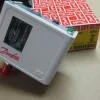Quote from
admin on July 17, 2025, 4:50 pm
How to Calculate Air Conditioner Horsepower (HP) for Your Room
Quick Answer:
1 HP ≈ 9,000–12,000 BTU/hr
*(1 HP = 9,000 BTU/hr in Asia; 1 HP = 12,000 BTU/hr in some Western countries)*
Step 1: Calculate Your Room’s Required BTU/hr
Use the same method as for BTU/hr sizing:
-
Base BTU: Room Length (ft) × Width (ft) × 20
*(Example: 10 ft × 12 ft room = 120 sq ft × 20 = 2,400 BTU/hr)*
-
Adjust for Key Factors:
-
Sunlight: Heavy sun? × 1.1 | Shaded? × 0.9
-
People: Add 600 BTU/hr per person beyond 2.
-
Kitchen: Add 4,000 BTU/hr if applicable.
-
Ceiling Height: Multiply by (Actual Height ÷ 8 ft).
-
Insulation: Poor? × 1.2 | Excellent? × 0.85
(Full BTU calculation guide here – reuse your previous result if calculated)
Step 2: Convert BTU/hr to Horsepower (HP)
Use these industry standards:
| Region |
BTU/hr to HP Conversion |
| Asia, Philippines, etc. |
1 HP = 9,000 BTU/hr |
| US, Europe, Australia |
1 HP ≈ 12,000 BTU/hr (often called "tonnage") |
Formula:
Required HP = Total BTU/hr ÷ [9,000 or 12,000]
Example Calculation:
*Room: 15 ft × 15 ft (225 sq ft), 3 people, average sun, 9-ft ceilings (Malaysia)*
-
Base BTU: 225 × 20 = 4,500 BTU/hr
-
Ceiling adjustment: 4,500 × (9/8) = 5,063 BTU/hr
-
Occupancy: +600 BTU (1 extra person) = 5,663 BTU/hr
-
HP Needed (Asia): 5,663 ÷ 9,000 ≈ 0.63 HP → Round up to 0.75 or 1.0 HP
Horsepower Sizing Chart (Based on Asian Standard: 1 HP = 9,000 BTU/hr)
| Room Size (sq ft) |
Recommended HP |
Best For |
| 100–150 |
0.5–0.75 HP |
Small bedrooms (10–12 m²) |
| 150–250 |
1.0 HP |
Medium bedrooms/living rooms (14–23 m²) |
| 250–350 |
1.5 HP |
Master bedrooms/large living rooms (23–32 m²) |
| 350–500 |
2.0 HP |
Open-plan areas (32–46 m²) |
⚠️ Critical Tip: Always round up to the next available HP size (e.g., 0.63 HP → 0.75 HP or 1.0 HP). Undersizing causes weak cooling; oversizing wastes energy.
Key Considerations:
-
Climate Matters:
-
Hot/humid climates (e.g., Thailand, Singapore): Add 10–15% BTU/HP.
-
Dry/mild climates: Subtract 10%.
-
"Tonnage" in Western Markets:
-
1 Ton = 12,000 BTU/hr ≈ 1 HP (marketing term).
-
*Example: A 24,000 BTU/hr unit = 2 Tons = ~2 HP.*
-
Avoid Oversizing:
Final Cheat Sheet:
-
Measure room: Length × Width = Sq Ft
-
Sq Ft × 20 = Base BTU
-
Apply adjustments (sun, people, etc.)
-
Convert to HP:
-
Asia: Total BTU ÷ 9,000
-
West: Total BTU ÷ 12,000
-
Round up to nearest HP size.
✅ Pro Tip: Match your result to standard HP sizes:
0.5 HP (5,000 BTU) → 0.75 HP (7,000 BTU) → 1.0 HP (9,000 BTU) → 1.5 HP (12,000 BTU) → 2.0 HP (18,000 BTU)
Calculate wisely – the right HP ensures efficient cooling, lower bills, and a longer-lasting AC!
How to Calculate Air Conditioner Horsepower (HP) for Your Room
Quick Answer:
1 HP ≈ 9,000–12,000 BTU/hr
*(1 HP = 9,000 BTU/hr in Asia; 1 HP = 12,000 BTU/hr in some Western countries)*
Step 1: Calculate Your Room’s Required BTU/hr
Use the same method as for BTU/hr sizing:
-
Base BTU: Room Length (ft) × Width (ft) × 20
*(Example: 10 ft × 12 ft room = 120 sq ft × 20 = 2,400 BTU/hr)*
-
Adjust for Key Factors:
-
Sunlight: Heavy sun? × 1.1 | Shaded? × 0.9
-
People: Add 600 BTU/hr per person beyond 2.
-
Kitchen: Add 4,000 BTU/hr if applicable.
-
Ceiling Height: Multiply by (Actual Height ÷ 8 ft).
-
Insulation: Poor? × 1.2 | Excellent? × 0.85
(Full BTU calculation guide here – reuse your previous result if calculated)
Step 2: Convert BTU/hr to Horsepower (HP)
Use these industry standards:
| Region |
BTU/hr to HP Conversion |
| Asia, Philippines, etc. |
1 HP = 9,000 BTU/hr |
| US, Europe, Australia |
1 HP ≈ 12,000 BTU/hr (often called "tonnage") |
Formula:
Required HP = Total BTU/hr ÷ [9,000 or 12,000]
Example Calculation:
*Room: 15 ft × 15 ft (225 sq ft), 3 people, average sun, 9-ft ceilings (Malaysia)*
-
Base BTU: 225 × 20 = 4,500 BTU/hr
-
Ceiling adjustment: 4,500 × (9/8) = 5,063 BTU/hr
-
Occupancy: +600 BTU (1 extra person) = 5,663 BTU/hr
-
HP Needed (Asia): 5,663 ÷ 9,000 ≈ 0.63 HP → Round up to 0.75 or 1.0 HP
Horsepower Sizing Chart (Based on Asian Standard: 1 HP = 9,000 BTU/hr)
| Room Size (sq ft) |
Recommended HP |
Best For |
| 100–150 |
0.5–0.75 HP |
Small bedrooms (10–12 m²) |
| 150–250 |
1.0 HP |
Medium bedrooms/living rooms (14–23 m²) |
| 250–350 |
1.5 HP |
Master bedrooms/large living rooms (23–32 m²) |
| 350–500 |
2.0 HP |
Open-plan areas (32–46 m²) |
⚠️ Critical Tip: Always round up to the next available HP size (e.g., 0.63 HP → 0.75 HP or 1.0 HP). Undersizing causes weak cooling; oversizing wastes energy.
Key Considerations:
-
Climate Matters:
-
Hot/humid climates (e.g., Thailand, Singapore): Add 10–15% BTU/HP.
-
Dry/mild climates: Subtract 10%.
-
"Tonnage" in Western Markets:
-
1 Ton = 12,000 BTU/hr ≈ 1 HP (marketing term).
-
*Example: A 24,000 BTU/hr unit = 2 Tons = ~2 HP.*
-
Avoid Oversizing:
Final Cheat Sheet:
-
Measure room: Length × Width = Sq Ft
-
Sq Ft × 20 = Base BTU
-
Apply adjustments (sun, people, etc.)
-
Convert to HP:
-
Asia: Total BTU ÷ 9,000
-
West: Total BTU ÷ 12,000
-
Round up to nearest HP size.
✅ Pro Tip: Match your result to standard HP sizes:
0.5 HP (5,000 BTU) → 0.75 HP (7,000 BTU) → 1.0 HP (9,000 BTU) → 1.5 HP (12,000 BTU) → 2.0 HP (18,000 BTU)
Calculate wisely – the right HP ensures efficient cooling, lower bills, and a longer-lasting AC!




